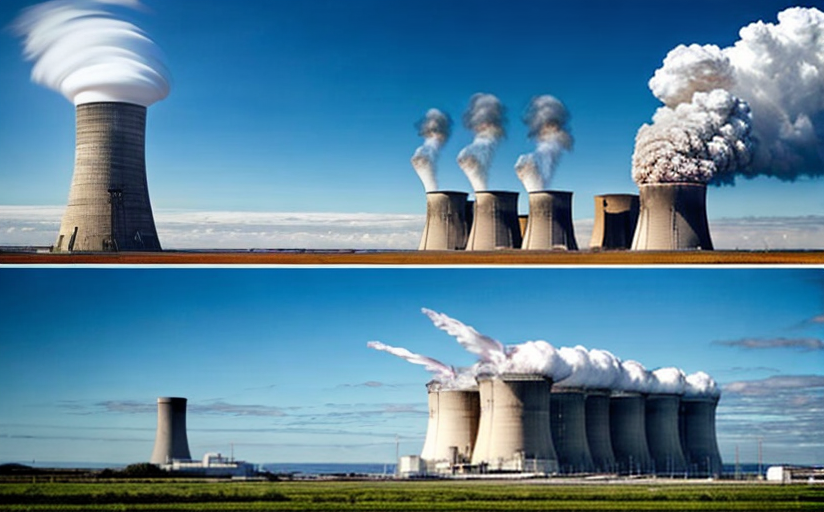The Great Nuclear Energy Debate:
A Sustainable Solution or Impending Environmental Disaster?
The global conversation concerning the viability of nuclear energy as an environmentally friendly source of power, juxtaposed against the inherent risks it presents, has grown increasingly contentious. As the world faces increasingly alarming environmental crises like excessive fossil fuel consumption and astonishing levels of greenhouse gas emissions, nuclear energy presents a tantalizing solution that, nonetheless, harbors its own set of potential threats.
Pros of Nuclear Energy
One of the most prominent advantages of nuclear energy is its potential for significantly reducing our dependence on fossil fuels. Each nuclear reactor is capable of generating enormous quantities of energy, far surpassing the output of traditional fuels. Moreover, unlike traditional power sources, nuclear energy does not emit any greenhouse gases. The operation of a nuclear power plant contributes directly to the reduction of global warming and climate change.
Economic Implications
From an economic standpoint, nuclear power plants, once operational, are incredibly efficient and cost-effective. They can produce electricity at a lower cost than most other traditional forms of energy generation. This makes nuclear energy an attractive prospect for nations seeking to maintain economic stability while transitioning away from fossil fuels.
Cons of Nuclear Energy
Despite the advantages, the potential threats posed by nuclear energy continue to raise alarm across the globe. The inherent threat of radiation leaks, as seen in the Chernobyl disaster of 1986 and Fukushima disaster of 2011, is a significant concern. Another contentious issue is the handling of nuclear waste. Despite several advancements in nuclear technology, an entirely safe and foolproof method for the disposal of nuclear waste still eludes us.
Environmental Repercussions
While nuclear energy itself does not contribute to greenhouse gas emissions, the mining and refining of uranium, along with the disposal of nuclear waste, have serious environmental repercussions. Accidents, while rare, have catastrophic and lasting impacts not only on the human populace but also on the environment.
Potential Solutions
Addressing the issues faced by nuclear energy requires innovations in technology and regulatory procedures. Improved reactor designs that deliver enhanced safety features, along with robust regulatory frameworks, can reduce the risks associated with power plant operations. Furthermore, extensive research into nuclear waste management and disposal methods is needed to address one of the most pressing concerns associated with nuclear energy.
Conclusion
The use of nuclear energy as a sustainable solution to our energy needs requires a balanced and informed approach. While it offers a pathway towards a more environmentally friendly energy generation landscape, the potential implications for safety and the environment cannot be ignored. Crucially, the debate over its pros and cons underlines the need for constant, vigilant and constructive dialogue about our future energy supply.



















Comments
Leave a Comment